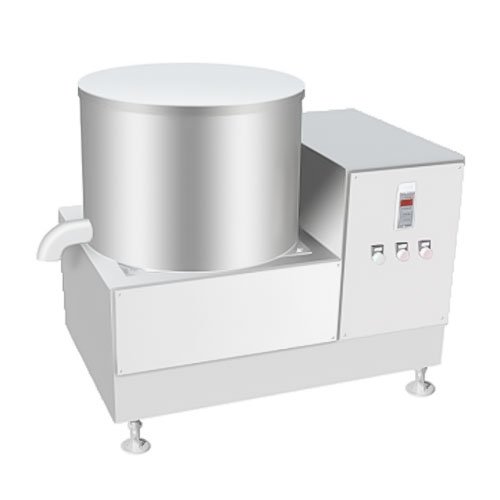
In the fast-paced world of food processing, efficiency is everything. Whether you run a small catering business or manage a large food production facility, the time and labor spent on vegetable preparation can significantly impact your bottom line. One of the most tedious and labor-intensive tasks in food preparation is dehydrating vegetables – a critical step for many recipes and products.
The Old Way vs. The New Way
Remember the traditional method of dehydrating vegetables? Hours spent manually pressing, spinning, or hanging vegetables to remove excess water. Not only is this process incredibly time-consuming, but it also leads to inconsistent results and worker fatigue.
Industrial vegetable dehydrators have transformed this process entirely. These powerful machines can complete in minutes what would take hours by hand, with more consistent results every time.
Who Benefits from Vegetable Dehydrators?
Restaurant Kitchens
For busy restaurant kitchens, time is literally money. Chefs need ingredients prepared quickly and consistently to maintain quality across all dishes. A vegetable dehydrator allows kitchen staff to process large batches of vegetables in advance, ensuring they’re ready when needed during service hours.
Imagine preparing for a busy weekend service. Your kitchen needs to process several kilograms of spinach for various dishes. Instead of assigning staff to manually press and drain the spinach for hours, they can load the dehydrator and focus on other critical preparation tasks while the machine does the work.
Food Manufacturing Companies
For companies producing packaged foods, consistency is paramount. Customers expect the same quality in every package they purchase. Industrial dehydrators ensure that vegetables have the same moisture content every time, leading to consistent product quality and extended shelf life.
Food manufacturers can also significantly increase their production capacity. With the ability to process hundreds of kilograms per hour, these machines keep production lines moving efficiently without creating bottlenecks.
Pickle and Preserved Food Producers
Businesses specializing in pickled vegetables, kimchi, sauerkraut, and other preserved foods understand that proper dehydration is crucial before the fermentation or pickling process begins. Too much water can dilute brines and affect the final product quality.
With precise control over the dehydration process, these producers can achieve optimal moisture levels for perfect preservation every time.
Catering Companies
Catering companies dealing with large-scale food preparation for events face unique challenges in vegetable processing. Industrial dehydrators allow them to prepare vegetables in advance without compromising quality, making event day operations much smoother.
Real Benefits That Make a Difference
Dramatic Time Savings
The most immediate benefit users notice is the tremendous time savings. What previously took hours of manual labor can now be completed in minutes. This efficiency allows businesses to increase production without increasing labor costs.
Consistent Quality
Hand-dehydration methods inevitably lead to inconsistencies. Some vegetables might retain more moisture than others, affecting cooking times and final product quality. Industrial dehydrators provide uniform results across entire batches, ensuring consistent quality in your final products.
Reduced Labor Costs
By automating the dehydration process, businesses can reallocate staff to more valuable tasks. This not only increases overall productivity but also reduces the physical strain on workers who would otherwise spend hours on manual dehydration.
Improved Hygiene
Modern vegetable dehydrators are designed with food safety in mind. Their stainless steel construction and easy-to-clean surfaces help maintain proper hygiene standards, reducing contamination risks compared to manual methods that involve more handling.
Extended Shelf Life
Properly dehydrated vegetables last longer and maintain better quality during storage. By removing excess moisture efficiently, these machines help prevent premature spoilage and extend the usable life of processed vegetables.
Common Applications
Fresh-Cut Salad Production
For businesses producing pre-packaged salads, effective dehydration is essential for quality and shelf life. Excess moisture leads to wilting and spoilage. Industrial dehydrators ensure greens are perfectly dried to maintain crispness and freshness.
Frozen Vegetable Processing
Before freezing vegetables, removing surface moisture helps prevent ice crystal formation that can damage cell structures. This results in better texture and quality after thawing.
Vegetable Chip Production
Creating crispy vegetable chips requires precise moisture removal before frying or baking. Industrial dehydrators provide the perfect pre-processing step to ensure consistently crispy results.
Soup and Sauce Preparation
For businesses producing soups and sauces, controlling vegetable moisture content helps achieve the right consistency in the final product without excessive reduction time.
Making the Transition
Transitioning from manual dehydration to an industrial system is straightforward. Modern machines are designed with user-friendly interfaces that require minimal training to operate effectively. Most businesses report that staff quickly adapt to the new equipment and appreciate the reduced physical strain.
The space-efficient design of these machines means they can fit into most commercial kitchens and processing facilities without major renovations. Their standard electrical requirements make installation simple in most commercial settings.
The Environmental Angle
In addition to business benefits, industrial vegetable dehydrators can contribute to sustainability efforts. By improving efficiency and reducing waste through better preservation, these machines help food businesses minimize their environmental footprint.
The energy-efficient motors in modern dehydrators consume less electricity per kilogram of processed vegetables compared to older methods or extended refrigeration of excess produce.
Conclusion
For any business involved in vegetable processing, industrial dehydrators represent a significant opportunity to improve efficiency, quality, and consistency. The investment quickly pays for itself through labor savings, increased production capacity, and improved product quality.
As consumer demands for fresh, high-quality food products continue to grow, having the right equipment to meet those demands efficiently becomes increasingly important. Industrial vegetable dehydrators provide a competitive edge in a challenging market.
By eliminating one of the most labor-intensive steps in vegetable processing, these machines allow food businesses to focus on what they do best – creating delicious, high-quality food products for their customers.

